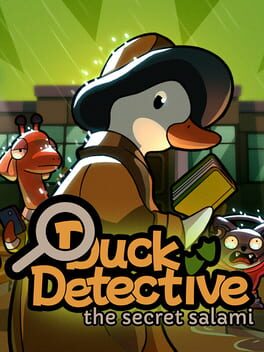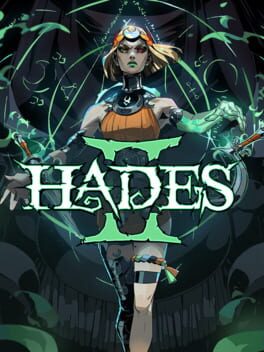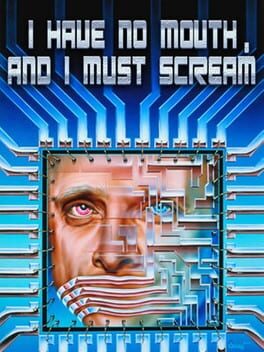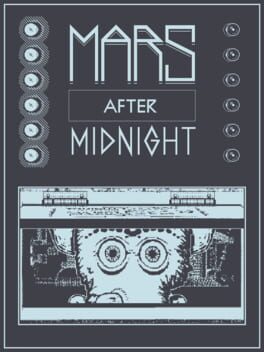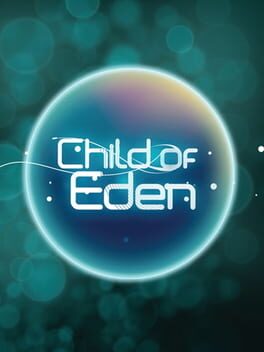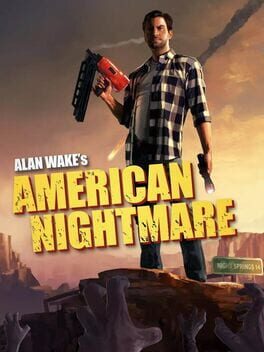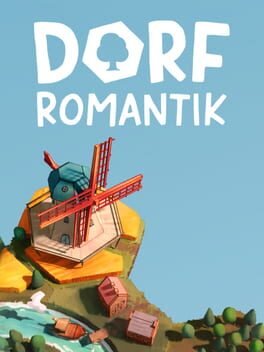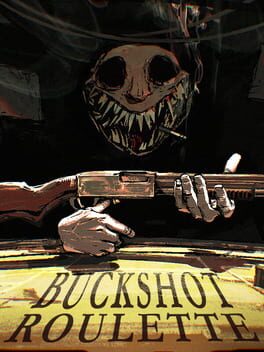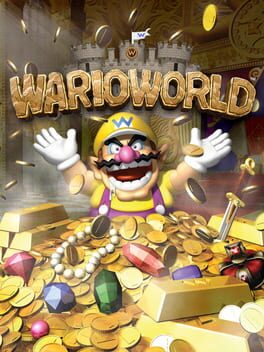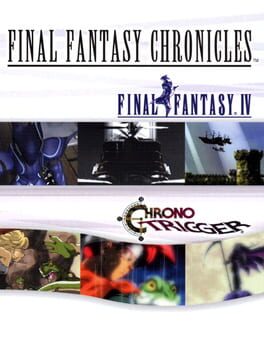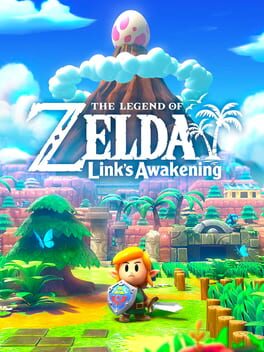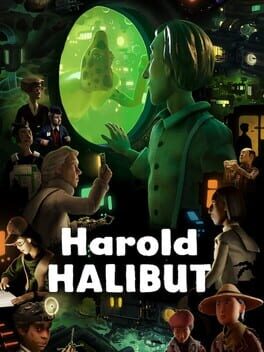tangysphere
BACKER
604 Reviews liked by tangysphere
Hades II
2024
The only thing holding me back from giving this game a higher rating is due to this being in early access, so some features are obviously missing. But with that being said though, this is a fantastic follow up to Hades and the framework is definitely there.
As per usual, Supergiant has crushed both the character and world design. The soundtrack is stellar and even more incorporated into the game with the second boss and the combat is as buttery smooth as ever. Having not only one but two paths was also a welcome surprise and I absolutely love the environments they incorporated.
I am curious to see how the story will play out though because as is, It feels like it’s about 75% of the way there but sort of ends abruptly once clearing for the first time. So besides that and a few balancing issues, I know we’re in good hands. Overall, I’m excited to see how this game fully evolves as we get closer to a final build!
As per usual, Supergiant has crushed both the character and world design. The soundtrack is stellar and even more incorporated into the game with the second boss and the combat is as buttery smooth as ever. Having not only one but two paths was also a welcome surprise and I absolutely love the environments they incorporated.
I am curious to see how the story will play out though because as is, It feels like it’s about 75% of the way there but sort of ends abruptly once clearing for the first time. So besides that and a few balancing issues, I know we’re in good hands. Overall, I’m excited to see how this game fully evolves as we get closer to a final build!
Lorelei and the Laser Eyes feels like an anachronism. I don’t just mean this from how the game haphazardly scatters documents from 1847 and 2014 throughout the hotel set in 1962, or how it references multiple past eras of gaming with PS1 survival-horror fixed camera angles or DOS-inspired 1-bit adventure game segments hidden away on floppy disks, though these elements certainly play their part in creating what developer Simogo refers to as “collage of styles, ideas, and disparate inspirations.” No, what instantly caught my attention was how uncompromising yet thoughtful the game felt. In an era where most developers seem content to simply pay lip service to the great mystery/adventure games of old while over-simplifying their gameplay mechanics, Simogo seems to have figured out the formula of creating a final product that feels intricately designed, yet ultimately accessible.
I’ll admit that I’m not too familiar with Simogo’s previous work; the only other game I’ve played by them is Sayonara Wild Hearts. That said, I would not have immediately guessed that Lorelei was by the same developers from my first hour alone. In some ways, Lorelei presents an interesting foil to Sayonara. Sayonara’s persisting strength is its grasp on harmony: the epitome of what is essentially a playable music video, it’s pure and immediate gratification racking up points to the beat in this flashy and lush arcade game. On the other hand, Lorelei feels deliberately constructed to emphasize its dissonance. From the uncomfortably quiet manor clashing with the occasional audible off-screen disruption to the vibrating monochrome textures interspersed with low poly environment, nothing seems right in its place. It’s a much slower burn than Sayonara as well, with most players taking fifteen hours or more (in comparison to Sayonara’s two hour runtime) to navigate the sprawling hotel with no hand-holding provided whatsoever.
As different as these two titles appear however, they do have one thing in common: minimalism. For example, both games require just a d-pad/joystick and a single button to be played. Sayonara gets away with this because the available actions on input feel clearly telegraphed by the visuals and generally boil down to moving and timed dodges with the music. Lorelei similarly gets away with this because it deemphasizes more complex/technical interactions (i.e. the usage suite of adventure game verbs in look, touch, obtain, etc) with sheer puzzle intuition. Simogo describes this as forcing the player to “get a deeper understanding… and connection to [the world]” and just like Sayonara, “wanted the complexity of the game to revolve around this, and not dexterity.”
What makes this particularly impressive is how Simogo was able to strike a fair balance between simplicity and variety. According to the game’s development page, the game became “a very iterative toy box” where many different systems conceptualized over the game’s development cycle could interact and interplay with one another in different ways. Interestingly, I found that most of the solutions to these different puzzles were not that difficult or complex to determine. Even so, despite Lorelei’s simple controls and straightforward objective (figuring out passwords/key phrases to unlock new areas and information), the game is able to successfully obfuscate the means to achieve said objective by drastically changing the means in which information is presented to the player, for instance by using different camera angles and systems that allowed them to “change a lot of rendering parameters on the fly” from the aforementioned iterative toy box. Additionally, Simogo highlights key details from clues to ensure that players don’t get too confused, but leave enough ambiguity by never outright leading the players onto specific logic trains and refusing to provide any specific assistance (no in-game hint system and no specific feedback aside from telling players if they’re right/wrong). The result is a confident final product that understands the persisting strength of a good puzzle adventure game: a game that gives the player all the information they need to succeed while giving them the room to work out the connections themselves, and a game that constantly surprises the player with new opportunities to intuitively understand the world around them without ever feeling too frustrated by unfamiliar mechanics.
I do have to admit however, that there are a few instances where Lorelei’s minimalism and uncompromising nature can backfire. For instance, the lack of detailed player feedback aside from a right/wrong sound effect usually isn’t a significant deterrent, given that players can fine-tune most of the game’s one-variable solutions and are encouraged to tackle the hotel’s many branching paths and puzzles at their own pace, since they may not even have the pertinent information required and might have to work out other puzzles to obtain said information. However, certain late-game puzzles require multiple sets of answers (ex: a computer that requires three different types of phrases in a password), and it can be frustrating getting barricaded by such puzzles and not knowing which part of the answer requires more investigation. I’ll also echo some of the previous complaints regarding the controls, because while I appreciate that Simogo has crafted a base system where more complex controls aren’t required, I also don’t think that it’s a huge ask to add a “cancel/back” input for a second button. As a result, it takes significantly more scrolling to get out of menus or spamming random inputs to erroneously enter passwords if I want to back out of a puzzle, and the amount of wasted time per menu/puzzle really builds up over a playthrough.
While I did find the somewhat telegraphed ending slightly underwhelming given how elaborately the game wove its lore into its many clues, I nevertheless really savored my time with Lorelei. I might not have laser eyes, but I can certainly see this game’s approach upon system cohesion influencing many puzzle adventure games to come. As it stands, it’s another solid entry for Simogo’s innovative yet familiar library, and I’ll be thinking about its many secrets for quite some time. Perhaps it's finally time to delve into Device 6.
I’ll admit that I’m not too familiar with Simogo’s previous work; the only other game I’ve played by them is Sayonara Wild Hearts. That said, I would not have immediately guessed that Lorelei was by the same developers from my first hour alone. In some ways, Lorelei presents an interesting foil to Sayonara. Sayonara’s persisting strength is its grasp on harmony: the epitome of what is essentially a playable music video, it’s pure and immediate gratification racking up points to the beat in this flashy and lush arcade game. On the other hand, Lorelei feels deliberately constructed to emphasize its dissonance. From the uncomfortably quiet manor clashing with the occasional audible off-screen disruption to the vibrating monochrome textures interspersed with low poly environment, nothing seems right in its place. It’s a much slower burn than Sayonara as well, with most players taking fifteen hours or more (in comparison to Sayonara’s two hour runtime) to navigate the sprawling hotel with no hand-holding provided whatsoever.
As different as these two titles appear however, they do have one thing in common: minimalism. For example, both games require just a d-pad/joystick and a single button to be played. Sayonara gets away with this because the available actions on input feel clearly telegraphed by the visuals and generally boil down to moving and timed dodges with the music. Lorelei similarly gets away with this because it deemphasizes more complex/technical interactions (i.e. the usage suite of adventure game verbs in look, touch, obtain, etc) with sheer puzzle intuition. Simogo describes this as forcing the player to “get a deeper understanding… and connection to [the world]” and just like Sayonara, “wanted the complexity of the game to revolve around this, and not dexterity.”
What makes this particularly impressive is how Simogo was able to strike a fair balance between simplicity and variety. According to the game’s development page, the game became “a very iterative toy box” where many different systems conceptualized over the game’s development cycle could interact and interplay with one another in different ways. Interestingly, I found that most of the solutions to these different puzzles were not that difficult or complex to determine. Even so, despite Lorelei’s simple controls and straightforward objective (figuring out passwords/key phrases to unlock new areas and information), the game is able to successfully obfuscate the means to achieve said objective by drastically changing the means in which information is presented to the player, for instance by using different camera angles and systems that allowed them to “change a lot of rendering parameters on the fly” from the aforementioned iterative toy box. Additionally, Simogo highlights key details from clues to ensure that players don’t get too confused, but leave enough ambiguity by never outright leading the players onto specific logic trains and refusing to provide any specific assistance (no in-game hint system and no specific feedback aside from telling players if they’re right/wrong). The result is a confident final product that understands the persisting strength of a good puzzle adventure game: a game that gives the player all the information they need to succeed while giving them the room to work out the connections themselves, and a game that constantly surprises the player with new opportunities to intuitively understand the world around them without ever feeling too frustrated by unfamiliar mechanics.
I do have to admit however, that there are a few instances where Lorelei’s minimalism and uncompromising nature can backfire. For instance, the lack of detailed player feedback aside from a right/wrong sound effect usually isn’t a significant deterrent, given that players can fine-tune most of the game’s one-variable solutions and are encouraged to tackle the hotel’s many branching paths and puzzles at their own pace, since they may not even have the pertinent information required and might have to work out other puzzles to obtain said information. However, certain late-game puzzles require multiple sets of answers (ex: a computer that requires three different types of phrases in a password), and it can be frustrating getting barricaded by such puzzles and not knowing which part of the answer requires more investigation. I’ll also echo some of the previous complaints regarding the controls, because while I appreciate that Simogo has crafted a base system where more complex controls aren’t required, I also don’t think that it’s a huge ask to add a “cancel/back” input for a second button. As a result, it takes significantly more scrolling to get out of menus or spamming random inputs to erroneously enter passwords if I want to back out of a puzzle, and the amount of wasted time per menu/puzzle really builds up over a playthrough.
While I did find the somewhat telegraphed ending slightly underwhelming given how elaborately the game wove its lore into its many clues, I nevertheless really savored my time with Lorelei. I might not have laser eyes, but I can certainly see this game’s approach upon system cohesion influencing many puzzle adventure games to come. As it stands, it’s another solid entry for Simogo’s innovative yet familiar library, and I’ll be thinking about its many secrets for quite some time. Perhaps it's finally time to delve into Device 6.
What you have here is a 90s point-and-click adventure game adaptation of a 60s short story, with heavy involvement of the original author, that (in my opinion) surpasses that original work. Unlike the short story, there's an underlying theme of hope within the hopeless walls of AM. Hope, not for salvation, but closure, to make amends with your past. Great story, great presentation, absolutely a game worth playing.
Pentiment
2022
There's a certain power in dissatisfaction. In giving players bad choices. There are many choice-based crpgs that offer perhaps too much choice in how the world is shaped. In how to influence others. Pentiment wisely pulls back on this to build an aching, intimate yearning. A yearning to make all the right decisions. A yearning to keep everyone safe, to choose a killer that will hurt the fewest people instead of choosing a killer based on evidence. A yearning to protect, and a yearning when we've failed. Our main character is not the hero deciding the fate of the world. He's just a guy, in a place and time. How we all leave our mark on history is subject to so many factors beyond our control.
Mechanically, its hard to say every skill has all the uses it could. Skills mainly make certain investigations easier, but they're always multiple avenues to uncover all the evidence you want. But this also means that every skill choice that does provide a new dialogue path feels all the more rewarding for your commitment. The skill choices in the final act of the game, compared to the others, are much more limited in their scope, but the final act is also much more on the rails than its previous story sections. Less time for choices to matter.
Still. Just kind of a truly banger game with incredible artistic sensibilities.
Mechanically, its hard to say every skill has all the uses it could. Skills mainly make certain investigations easier, but they're always multiple avenues to uncover all the evidence you want. But this also means that every skill choice that does provide a new dialogue path feels all the more rewarding for your commitment. The skill choices in the final act of the game, compared to the others, are much more limited in their scope, but the final act is also much more on the rails than its previous story sections. Less time for choices to matter.
Still. Just kind of a truly banger game with incredible artistic sensibilities.
Mars After Midnight
2024
Mars After Midnight is full of hilarious weirdos, is great in small sessions, features an immersive use of the crank, and even managed to fit in some subtle but interesting worldbuilding; however, I was still left yearning for a bit more substance after finishing it. That's not to say I wish it was longer, just that I wish there was more room for decision making from the player. I feel like the classes attended by the Martians could've been a good solution here if they involved some sort of gameplay component rather than just ending in a simple (albeit quite fun) cutscene but hey I'm not a game designer.
As a bit of a tangent, while playing this game I couldn't help but have a lingering worry in my mind that this was just going to be the peak of games on the platform. I express this as worry because while this could very well be a perfect 'Playdate game', it's hard to deny that it's lacking depth and as someone who only purchased my console recently I was left wondering, 'Is this going to be the case with all other exclusives as well?'. I guess this is perhaps my roundabout way of asking for other game recommendations on the Playdate that hopefully disprove this notion?
As a bit of a tangent, while playing this game I couldn't help but have a lingering worry in my mind that this was just going to be the peak of games on the platform. I express this as worry because while this could very well be a perfect 'Playdate game', it's hard to deny that it's lacking depth and as someone who only purchased my console recently I was left wondering, 'Is this going to be the case with all other exclusives as well?'. I guess this is perhaps my roundabout way of asking for other game recommendations on the Playdate that hopefully disprove this notion?
Child of Eden
2011
ingame screenshot: https://i.imgur.com/cE30mYy.png
A joyous blissful hydrating nourishing follow-up to Rez, but I'm not the keenest sadly!! Child of Eden is a rly gorgeous example of that latestage Frutiger Aero Sharp Quattron Tech Advertisement aesthetiq, fully encompassed by Mizuguchi's spacey yoga house band, Genki Rockets. It's just a little loser of my own personal battle of appeals because none of this really hits my palate in the same way anything from Rez did. There's this lack of energy I can draw from Child of Eden - whereas Rez's thumping techno OST that blossoms in complexity across the span of a stage, alongside the Char Davies wireframe anthropology artstyle.... I just have a very clear fav, and Rez quite simply doesn't have the nerve to ask me to replay a stage with better scores to progress to the next one. Incredibly corp behaviour 🥲
Well worth a play/emulation for anyone who loves Rez though, there are like three games in this genre if i'm generous and Mizuguchi made most of them.
A joyous blissful hydrating nourishing follow-up to Rez, but I'm not the keenest sadly!! Child of Eden is a rly gorgeous example of that latestage Frutiger Aero Sharp Quattron Tech Advertisement aesthetiq, fully encompassed by Mizuguchi's spacey yoga house band, Genki Rockets. It's just a little loser of my own personal battle of appeals because none of this really hits my palate in the same way anything from Rez did. There's this lack of energy I can draw from Child of Eden - whereas Rez's thumping techno OST that blossoms in complexity across the span of a stage, alongside the Char Davies wireframe anthropology artstyle.... I just have a very clear fav, and Rez quite simply doesn't have the nerve to ask me to replay a stage with better scores to progress to the next one. Incredibly corp behaviour 🥲
Well worth a play/emulation for anyone who loves Rez though, there are like three games in this genre if i'm generous and Mizuguchi made most of them.
I feel so sorry for all non-Spanish speakers who will never understand just how funny the name ‘’Señor Chirridos’’ is; like… is not a bad translation of Mr. Scratch by any means, but it’s so fucking funny and it surprises me even more they just didn’t keep the original name… but I’m so glad they didn’t.
If Alan Wake is the main TV series, then American Nightmare feels like a Halloween special, which seems to be exactly what they were going for. Despite the original game having such an open finale and this going directly after it, it doesn’t really build upon the pre-established narrative beyond Alan’s character and his conflict with his doppelgänger, and that’s fine! I’m totally up for a shorter, more fast-paced story in this world, and American Nightmare does have a super interesting premise.
I actually liked how the combat worked in the first game, so expanding on that with more weapons and enemies while using the backdrop of a Night Springs episode and introducing a time-loop is the kind of craziness I can get behind, and AM does succeed at creating more interesting combat encounters than the original game ever did… but doesn’t try to go for more than that despite its many opportunities.
It does show a promising start; the three main areas of Arizona are interesting and fun to go through and a perfect excuse to battle the Taken, getting more manuscript pages, see more of Mr. Scratch and the little interactions with each of the characters, while not as natural as any of the conversations with the fellas of Bright Falls, are pretty neat. With the addition of a couple of weapons and enemies, this feels like the kind of combat sections they wanted to make the first time around; they even took out the driving section! We are freed from this accursed blight!
And we even get to hear how Barry and the Old Gods of Asgard are doing, glad to know they are still putting out pure fire!
It’s a pretty good time, a simple one, but it has some cool moments, I really liked the battles, and overall is just an entertaining time!... and then the second loop begins.
I absolutely love the idea of time-loops as a gameplay system, getting to learn more of the world and levels and using that knowledge to do tasks way faster and m is the best, however, poorly implemented time-loops can turn into doing the exact same thing x amount of times only with a different objective or two and with some new enemies… guess what American Nightmare decides to do. Each time loop is shorter than the last one, but not because you actively take decisions that make things speed up, but because either what were multiple objectives is only one now or because a NPC did the thing way before you. It doesn’t help that the major set-pieces don’t change at all; watching the petrol extractor is a cool sequence, but not one I would have liked to go through three times, and no, putting rock songs, as good as hey sound, doesn’t make it different or better.
Going through the motions the first time was fine, but having to walk through the same rope two other times is a chore, even if gets shorter every time. Worst part is that they really could have given you more openness if they really wanted; the NPCs you encounter also remember the time loops and no matter what, you can only truly win at the end of the last one, so diving you more lenience on how you deal with things wouldn’t have really affected thing at all, and we have here is just an excuse to turn 3 levels into 9.
As the loops go on, more enemies get introduced, and… listen, I really do like the combat way more on here, and some of the new enemies are pretty interesting; the Taken that throws projectiles and explosives and the one that divides each time you shine light on him are super cool ideas from a gameplay-wise and as ideas on their own but the rest of them… in many ways they feel like a waste. The enemies that replace the birds from the original game are faster to deal with but just as annoying, the giants are bullet sponges with no interest move-sets on their own, and the spiders are cool story wise, since they apparently are not part of the Taken perse and instead are part of the Dark Place fauna, but they being just big spiders feels like a wasted opportunity to create something way more cool and alien, and alsoWHY THE FUCK DID THEY HAVE TO BE SPIDERS OH MY GOD-
American Nightmare doesn’t create challenges by throwing enemies with interesting sets of moves, it just throws at you guys that really know how to take damage or a ton of them at the same time, best exemplified on the Arcade mode. I do know and understand that this is a more gameplay-focused entry, but when in the main story you go through the same beats over and over with some minor alterations, and the arcade mode —which by the way, has some unique level themes that I would have preferred to see much more in the main story instead of going through the Observatory three times — is just Wake against waves of enemies and see what score you can get… at a certain point the game loses me, and it doesn’t pull from the creativeness that I know it has and can have to keep me glued to it.
The Taken stay completely silent, and the creepy charm that was found on hearing their grunts and lines amongst the trees is completely gone; the manuscript pages are way less interesting this time around, and the opportunity of this being based around and taking place in a Night Springs episode Alan wrote isn’t taken advantage of at any point, making for a way less interesting story, and use of the reality- bending pages.
In the end, the thing that really kept me more intrigued and wanting to see the game to the finale was, who else, Mr. Scratch himself. I enjoyed most of the villains in the original Alan Wake, but NONE feel like Mr. Scratch; the sound distorting every time Wake says his name, the way he taunts Alan and how he ENJOYS being the worst of him, a true monster all the way through, it’s a disturbing delight every time he’s on screen (literally) and the uneasiness he carries is one I didn’t expected to be done so well. I wished he and Alan had more opportunities to bounce each other, ‘cause every time they did it was a delight, and luckily it seems that American Nightmare isn’t that important to the overall Alan Wake narrative, so hopefully he didn’t kick the bucket, I’d love to see more of him…
There’s still that Alan Wake attention to detail and story in here, but it didn’t go as deep as it could have, and we have is a story that, while fun at times and with some cool extras and secrets, it still is what is: a Halloween special that doesn’t want to be a real successor or groundbreaking, but it also doesn’t take advantage of the potential it itself sets, and it can drag on at times… Still fun and funny at times, tho!
We’ll meet again, Champion of Light
I’ll see you soon, Herald of Darkness
If Alan Wake is the main TV series, then American Nightmare feels like a Halloween special, which seems to be exactly what they were going for. Despite the original game having such an open finale and this going directly after it, it doesn’t really build upon the pre-established narrative beyond Alan’s character and his conflict with his doppelgänger, and that’s fine! I’m totally up for a shorter, more fast-paced story in this world, and American Nightmare does have a super interesting premise.
I actually liked how the combat worked in the first game, so expanding on that with more weapons and enemies while using the backdrop of a Night Springs episode and introducing a time-loop is the kind of craziness I can get behind, and AM does succeed at creating more interesting combat encounters than the original game ever did… but doesn’t try to go for more than that despite its many opportunities.
It does show a promising start; the three main areas of Arizona are interesting and fun to go through and a perfect excuse to battle the Taken, getting more manuscript pages, see more of Mr. Scratch and the little interactions with each of the characters, while not as natural as any of the conversations with the fellas of Bright Falls, are pretty neat. With the addition of a couple of weapons and enemies, this feels like the kind of combat sections they wanted to make the first time around; they even took out the driving section! We are freed from this accursed blight!
And we even get to hear how Barry and the Old Gods of Asgard are doing, glad to know they are still putting out pure fire!
It’s a pretty good time, a simple one, but it has some cool moments, I really liked the battles, and overall is just an entertaining time!... and then the second loop begins.
I absolutely love the idea of time-loops as a gameplay system, getting to learn more of the world and levels and using that knowledge to do tasks way faster and m is the best, however, poorly implemented time-loops can turn into doing the exact same thing x amount of times only with a different objective or two and with some new enemies… guess what American Nightmare decides to do. Each time loop is shorter than the last one, but not because you actively take decisions that make things speed up, but because either what were multiple objectives is only one now or because a NPC did the thing way before you. It doesn’t help that the major set-pieces don’t change at all; watching the petrol extractor is a cool sequence, but not one I would have liked to go through three times, and no, putting rock songs, as good as hey sound, doesn’t make it different or better.
Going through the motions the first time was fine, but having to walk through the same rope two other times is a chore, even if gets shorter every time. Worst part is that they really could have given you more openness if they really wanted; the NPCs you encounter also remember the time loops and no matter what, you can only truly win at the end of the last one, so diving you more lenience on how you deal with things wouldn’t have really affected thing at all, and we have here is just an excuse to turn 3 levels into 9.
As the loops go on, more enemies get introduced, and… listen, I really do like the combat way more on here, and some of the new enemies are pretty interesting; the Taken that throws projectiles and explosives and the one that divides each time you shine light on him are super cool ideas from a gameplay-wise and as ideas on their own but the rest of them… in many ways they feel like a waste. The enemies that replace the birds from the original game are faster to deal with but just as annoying, the giants are bullet sponges with no interest move-sets on their own, and the spiders are cool story wise, since they apparently are not part of the Taken perse and instead are part of the Dark Place fauna, but they being just big spiders feels like a wasted opportunity to create something way more cool and alien, and alsoWHY THE FUCK DID THEY HAVE TO BE SPIDERS OH MY GOD-
American Nightmare doesn’t create challenges by throwing enemies with interesting sets of moves, it just throws at you guys that really know how to take damage or a ton of them at the same time, best exemplified on the Arcade mode. I do know and understand that this is a more gameplay-focused entry, but when in the main story you go through the same beats over and over with some minor alterations, and the arcade mode —which by the way, has some unique level themes that I would have preferred to see much more in the main story instead of going through the Observatory three times — is just Wake against waves of enemies and see what score you can get… at a certain point the game loses me, and it doesn’t pull from the creativeness that I know it has and can have to keep me glued to it.
The Taken stay completely silent, and the creepy charm that was found on hearing their grunts and lines amongst the trees is completely gone; the manuscript pages are way less interesting this time around, and the opportunity of this being based around and taking place in a Night Springs episode Alan wrote isn’t taken advantage of at any point, making for a way less interesting story, and use of the reality- bending pages.
In the end, the thing that really kept me more intrigued and wanting to see the game to the finale was, who else, Mr. Scratch himself. I enjoyed most of the villains in the original Alan Wake, but NONE feel like Mr. Scratch; the sound distorting every time Wake says his name, the way he taunts Alan and how he ENJOYS being the worst of him, a true monster all the way through, it’s a disturbing delight every time he’s on screen (literally) and the uneasiness he carries is one I didn’t expected to be done so well. I wished he and Alan had more opportunities to bounce each other, ‘cause every time they did it was a delight, and luckily it seems that American Nightmare isn’t that important to the overall Alan Wake narrative, so hopefully he didn’t kick the bucket, I’d love to see more of him…
There’s still that Alan Wake attention to detail and story in here, but it didn’t go as deep as it could have, and we have is a story that, while fun at times and with some cool extras and secrets, it still is what is: a Halloween special that doesn’t want to be a real successor or groundbreaking, but it also doesn’t take advantage of the potential it itself sets, and it can drag on at times… Still fun and funny at times, tho!
We’ll meet again, Champion of Light
I’ll see you soon, Herald of Darkness
Dorfromantik
2021
Buckshot Roulette
2023
Slowly this year is becoming the year of great reimagined “casino” games. Buckshot Roulette takes the simple premise of Russian Roulette and makes it an indie horror gem.
Gameplay is primarily passing a loaded shotgun back and forth between yourself and a dealer while using a mix of items and luck to turn the odds in your favor. A general run will involve chipping away at your opponent’s health bar before taking away life support to really up the ante. Once a run has been won you will unlock a double or nothing mode that spice ups items and become essentially endless if you are prepared to take the risk for bragging rights.
Buckshot Roulette seems to take place in some kind of secret backdoor Russian nightclub that lends itself greatly to the twisted washed-out horror aesthetic. All runs begin in a dirty bathroom as you pass through a walkway with loud thumping techno music before entering the dealer’s den. At all times you can almost always hear the music muffled through the walls as the sound design is honestly fantastic.
The simple premise makes it easy to pick up and the addictive double or nothing mode is great to try for a high score. With such a low asking price I can’t recommend Buckshot Roulette enough.
Gameplay is primarily passing a loaded shotgun back and forth between yourself and a dealer while using a mix of items and luck to turn the odds in your favor. A general run will involve chipping away at your opponent’s health bar before taking away life support to really up the ante. Once a run has been won you will unlock a double or nothing mode that spice ups items and become essentially endless if you are prepared to take the risk for bragging rights.
Buckshot Roulette seems to take place in some kind of secret backdoor Russian nightclub that lends itself greatly to the twisted washed-out horror aesthetic. All runs begin in a dirty bathroom as you pass through a walkway with loud thumping techno music before entering the dealer’s den. At all times you can almost always hear the music muffled through the walls as the sound design is honestly fantastic.
The simple premise makes it easy to pick up and the addictive double or nothing mode is great to try for a high score. With such a low asking price I can’t recommend Buckshot Roulette enough.
Wario World
2003
This game feels like if they made a Mario Party 4 minigame a full game.
And I love Mario Party 4 so that's fine by me.
I had vague memories of play this game as a kid. I remember the circus level, pyramid level, and slopes level, and I remember having a really hard time with Red Brief J. I was pretty surprised to learn that I had almost beaten this game as a kid even though I only played it maybe once at my grandparents' house? Maybe it was more than once.
Anyhow, this game is pretty damn easy and not super interesting in either of its genres - 3D platformer and beat 'em up. The combat is super simple, enemies offer virtually no lethality the majority of the time, and frankly I just avoided them most of the time in the second half since they're just boring. The only way to die in this game is by getting hit enough times, falling into pits takes you to a zone where you have to break boxes to find an exit and any damage you take there will just take away money (money which you only use to buy health, yipee). The fun of this game is pretty much entirely in exploration and bosses. there are a whole bunch of collectibles in each level. Most of them are pretty easy to find, but there are challenge rooms that have you solve some kind of puzzle or complete a platforming challenge and they're the most fun part of the game. That said, they are also pretty easy most of the time. The very last level had some challenging ones (and one puzzle that I don't know how you're supposed to do, I just cheesed it a bit).
Every level has a unique boss, and each world ends in another unique boss - there's actually more bosses in this game than levels. Honestly, they don't take much to figure out how to beat, but I appreciate making each boss special, and there are some wicked designs here. A marionette cherub, a medusa with a blue stone-cold face, a bigass spider, etc. They're overall very interestingly designed, and most of them are fun to fight even if they aren't difficult. I'd say the final boss is actually the worst one since you just run around a circle and hit crystals for eight or so cycles and its attacks are predictable and easy, it was a disappointing end to the game. All in all, the designs in Wario World are cool.
This might be the best-animated 3D Wario to date, he's very expressive, and mixing that with his iconic voice lines makes this Wario actually decently stylized. The music is jamming, and the vibes are great. I definitely wouldn't call this a GameCube must-play, but it's still a good time, I don't think most people would regret playing it.
And I love Mario Party 4 so that's fine by me.
I had vague memories of play this game as a kid. I remember the circus level, pyramid level, and slopes level, and I remember having a really hard time with Red Brief J. I was pretty surprised to learn that I had almost beaten this game as a kid even though I only played it maybe once at my grandparents' house? Maybe it was more than once.
Anyhow, this game is pretty damn easy and not super interesting in either of its genres - 3D platformer and beat 'em up. The combat is super simple, enemies offer virtually no lethality the majority of the time, and frankly I just avoided them most of the time in the second half since they're just boring. The only way to die in this game is by getting hit enough times, falling into pits takes you to a zone where you have to break boxes to find an exit and any damage you take there will just take away money (money which you only use to buy health, yipee). The fun of this game is pretty much entirely in exploration and bosses. there are a whole bunch of collectibles in each level. Most of them are pretty easy to find, but there are challenge rooms that have you solve some kind of puzzle or complete a platforming challenge and they're the most fun part of the game. That said, they are also pretty easy most of the time. The very last level had some challenging ones (and one puzzle that I don't know how you're supposed to do, I just cheesed it a bit).
Every level has a unique boss, and each world ends in another unique boss - there's actually more bosses in this game than levels. Honestly, they don't take much to figure out how to beat, but I appreciate making each boss special, and there are some wicked designs here. A marionette cherub, a medusa with a blue stone-cold face, a bigass spider, etc. They're overall very interestingly designed, and most of them are fun to fight even if they aren't difficult. I'd say the final boss is actually the worst one since you just run around a circle and hit crystals for eight or so cycles and its attacks are predictable and easy, it was a disappointing end to the game. All in all, the designs in Wario World are cool.
This might be the best-animated 3D Wario to date, he's very expressive, and mixing that with his iconic voice lines makes this Wario actually decently stylized. The music is jamming, and the vibes are great. I definitely wouldn't call this a GameCube must-play, but it's still a good time, I don't think most people would regret playing it.
Final Fantasy Origins is an impressive little collection that bundles the Wonderswan remakes of Final Fantasy I & II for the PlayStation, with a slew of quality-of-life improvements that make Final Fantasy's earliest entries more accessible to new audiences without cheapening their "old school" difficulty. About the only impressive thing Final Fantasy Chronicles does is introduce intrusive load times and slowdown to Super Nintendo games in the year 2001 and with the full space of dedicated CDs at Square's disposal. Astonishing.
I'm sure there's worse ways to play these games. I know my ears wouldn't be able to tolerate a full playthrough of Final Fantasy IV for the Game Boy Advance, at least, but Chronicles is still less than ideal. I didn't tear into the technical aspects of the game in my review of FFIV, but the amount of slowdown here is agonizing. Scroll through your inventory mid-battle and watch it tick by like molasses slowly pouring from the tap. I also encountered a somewhat frequent bug where Rydia's summons would appear for a couple of frames and then vanish, taking any ensuing effects or damage along with them. Granted, I have no (contemporary) frame of reference to say whether these problems are unique to Chronicles or simply part of the FFIV experience, but it definitely hampers the experience of playing this release regardless.
Chrono Trigger is a game I don't currently have the motivation to sit down and fully replay, but I did mess around in it for a while just to get a sense of what the Chronicles edition was like. Bad, it turns out! The load times are so disruptive to the pace of the game that I can't see myself bearing it for a full play in the same way I can FFIV. You do at least get a nicely animated FMV intro, but hear me out: you can just watch that on YouTube before starting an ill-gotten SNES ROM up in your emulator of choice.
Final Fantasy IV also gets an FMV intro, but uhh... uhhhhhh.... Square was respected for the quality of their CGI cutscenes during the PlayStation era, so what happened here? Was all their money tied up with Spirits Within?
There are simply better ways to play these games, and the only real value I see in Chronicles today is if you're trying to fill out a PlayStation 1 collection and are still in the "I don't want to spend a lot on old games" phase of what is sure to be a mounting problem that will ultimately lead you to financial ruin, like it has me. It starts with this and then the next thing you know you're eyeballing copies of Ehrgeiz and Xenogears and contemplating taking out a loan. I'm writing this review on a Chromebook from the back of my 2003 Toyota Avalon, which I live out of now because i bought too many video games, please donate to my patreon i need to eat i promise i won't spend it on Suikoden II thats not who i am anymore i've changed!!
I'm sure there's worse ways to play these games. I know my ears wouldn't be able to tolerate a full playthrough of Final Fantasy IV for the Game Boy Advance, at least, but Chronicles is still less than ideal. I didn't tear into the technical aspects of the game in my review of FFIV, but the amount of slowdown here is agonizing. Scroll through your inventory mid-battle and watch it tick by like molasses slowly pouring from the tap. I also encountered a somewhat frequent bug where Rydia's summons would appear for a couple of frames and then vanish, taking any ensuing effects or damage along with them. Granted, I have no (contemporary) frame of reference to say whether these problems are unique to Chronicles or simply part of the FFIV experience, but it definitely hampers the experience of playing this release regardless.
Chrono Trigger is a game I don't currently have the motivation to sit down and fully replay, but I did mess around in it for a while just to get a sense of what the Chronicles edition was like. Bad, it turns out! The load times are so disruptive to the pace of the game that I can't see myself bearing it for a full play in the same way I can FFIV. You do at least get a nicely animated FMV intro, but hear me out: you can just watch that on YouTube before starting an ill-gotten SNES ROM up in your emulator of choice.
Final Fantasy IV also gets an FMV intro, but uhh... uhhhhhh.... Square was respected for the quality of their CGI cutscenes during the PlayStation era, so what happened here? Was all their money tied up with Spirits Within?
There are simply better ways to play these games, and the only real value I see in Chronicles today is if you're trying to fill out a PlayStation 1 collection and are still in the "I don't want to spend a lot on old games" phase of what is sure to be a mounting problem that will ultimately lead you to financial ruin, like it has me. It starts with this and then the next thing you know you're eyeballing copies of Ehrgeiz and Xenogears and contemplating taking out a loan. I'm writing this review on a Chromebook from the back of my 2003 Toyota Avalon, which I live out of now because i bought too many video games, please donate to my patreon i need to eat i promise i won't spend it on Suikoden II thats not who i am anymore i've changed!!
Maybe one day, you’ll remember this place…
A Link to the Past starts on a stormy night...
I actually never have beaten any 2D Zelda games until now, for reasons that are a story for another time, but I have played an tried quiet a ton of them, some until the half-way point or even a bit after that, and the one thing they all share in common is how well they sell this larger than life epic, an adventure with its silly moments, but that it still feels consistently ‘’grand’’, and the menace of evil looming over the heads of everyone in Hyrule. This isn’t a complain, not in the slightest, and that isn’t the reasons I didn’t see any of those games to the finale, is just a part of their identity, like the dungeons, vast worlds opened by upgrades, and Octorocks…
Link’s Awakening begins on the quiet coast…
…But Koholint Island felt different. It still has the many dungeons with their bosses —some being not that great to be honest, at best they end too soon and at worst they are slow or overly simple—, it still has the usual items and upgrades, it has a TON of Octorocks ; in many ways, it still has the mark of 2D Zelda…only instead of feeling like an epic , at times it feels closer to a fairy tale.
Mist forest filled with secret passages and tricker raccoons, songs of fishes and frogs that give new life to what has been gone for a really long time, and what’s perhaps one of the funniest side quests in any game that’s essentially just an item-trade hunt, but it goes on and on across the entire island and your final reward is basically getting two items and scammed, it’s amazing!
There’s a joy to be found in the island, be it the in the little chats with the weird folk or the great search for the color dungeon; even when you aren’t at one of the incredible dungeons, which from a design perspective are the most fun I’ve had with 2D Zelda ever, I never felt like I was losing time or getting side-tracked. The little things like walking a Chomp-Chomp around and playing a crane machine feel just as important as getting the fabled legendary instruments, so mundane but at the same time so mysterious, so fun, so dream-like.
The diorama comparison was also completely on purpose, the toy-like feeling the remake offers is nothing short of amazing, everything feels made out of plastic and clay in such a purposeful way I got nothing but praise for it, and playing through this world reminded me of the tales I made while playing with my tales, distant memories flourishing amidst a world full of wonder and shells.
It sucks that it comes to a price; the game’s frames tank… a LOT, sometimes in the dungeons, but mostly out in the open, and it’s pretty noticeable. I understand that running a completely ‘’open’’ island with such wonderful visuals would have its consequences on performance but I would lie if I said it sometimes felt a lit too much, and I’m left wondering if maybe a bit more time in the oven or a patch or two would have helped things, ‘cause as it is it can feel jarring and take you out of the dream.
It's honestly a bit of a weird remake at times; the fact the jump item isn’t immediately binded to a button permanently boggles my mind considering just how essential jumping is for the whole adventure, especially the scroll sections; that plus how cryptic some enemies’ weaknesses can be compared to others which are pretty much clear as day and not being able to use the D-Pad in any way despite Link snapping into the eight set directions , I’m left wondering, more-so than after playing any other remake, how the original holds-up and if maybe it can feel more consistent. Don’t get me wrong, I’m still in love with the visuals, and things like the Telephone Hint Huts and are a godsend for people like me, but I feel like I’ve missed something by not playing the original… or maybe I’m just searching excuses to return to the island.
You have no idea the mental strength I’m putting in to not talk about every single interaction and moment, ‘cause Link’s Awakening feels special, like a dream, yes, but also like a pas memory, memories of spending summers at the beach and waling along hills, memories of thinking of adventure and meeting strange yet lovable folks, scattered memories from a distant past or even a completely different Goomba-infested reality, memories of songs so far away they are beginning to echo…
I feel like I’ve been missing something incredible by not playing this sooner, yet I’m happy to have finally clicked with one of Link’s adventures, and especially this one. It’s fun, it’s carefree, it’s exciting… and beautiful in its own particular, amazing way, to be honest…
…and then, it’ll become real.
A Link to the Past starts on a stormy night...
I actually never have beaten any 2D Zelda games until now, for reasons that are a story for another time, but I have played an tried quiet a ton of them, some until the half-way point or even a bit after that, and the one thing they all share in common is how well they sell this larger than life epic, an adventure with its silly moments, but that it still feels consistently ‘’grand’’, and the menace of evil looming over the heads of everyone in Hyrule. This isn’t a complain, not in the slightest, and that isn’t the reasons I didn’t see any of those games to the finale, is just a part of their identity, like the dungeons, vast worlds opened by upgrades, and Octorocks…
Link’s Awakening begins on the quiet coast…
…But Koholint Island felt different. It still has the many dungeons with their bosses —some being not that great to be honest, at best they end too soon and at worst they are slow or overly simple—, it still has the usual items and upgrades, it has a TON of Octorocks ; in many ways, it still has the mark of 2D Zelda…only instead of feeling like an epic , at times it feels closer to a fairy tale.
Mist forest filled with secret passages and tricker raccoons, songs of fishes and frogs that give new life to what has been gone for a really long time, and what’s perhaps one of the funniest side quests in any game that’s essentially just an item-trade hunt, but it goes on and on across the entire island and your final reward is basically getting two items and scammed, it’s amazing!
There’s a joy to be found in the island, be it the in the little chats with the weird folk or the great search for the color dungeon; even when you aren’t at one of the incredible dungeons, which from a design perspective are the most fun I’ve had with 2D Zelda ever, I never felt like I was losing time or getting side-tracked. The little things like walking a Chomp-Chomp around and playing a crane machine feel just as important as getting the fabled legendary instruments, so mundane but at the same time so mysterious, so fun, so dream-like.
The diorama comparison was also completely on purpose, the toy-like feeling the remake offers is nothing short of amazing, everything feels made out of plastic and clay in such a purposeful way I got nothing but praise for it, and playing through this world reminded me of the tales I made while playing with my tales, distant memories flourishing amidst a world full of wonder and shells.
It sucks that it comes to a price; the game’s frames tank… a LOT, sometimes in the dungeons, but mostly out in the open, and it’s pretty noticeable. I understand that running a completely ‘’open’’ island with such wonderful visuals would have its consequences on performance but I would lie if I said it sometimes felt a lit too much, and I’m left wondering if maybe a bit more time in the oven or a patch or two would have helped things, ‘cause as it is it can feel jarring and take you out of the dream.
It's honestly a bit of a weird remake at times; the fact the jump item isn’t immediately binded to a button permanently boggles my mind considering just how essential jumping is for the whole adventure, especially the scroll sections; that plus how cryptic some enemies’ weaknesses can be compared to others which are pretty much clear as day and not being able to use the D-Pad in any way despite Link snapping into the eight set directions , I’m left wondering, more-so than after playing any other remake, how the original holds-up and if maybe it can feel more consistent. Don’t get me wrong, I’m still in love with the visuals, and things like the Telephone Hint Huts and are a godsend for people like me, but I feel like I’ve missed something by not playing the original… or maybe I’m just searching excuses to return to the island.
You have no idea the mental strength I’m putting in to not talk about every single interaction and moment, ‘cause Link’s Awakening feels special, like a dream, yes, but also like a pas memory, memories of spending summers at the beach and waling along hills, memories of thinking of adventure and meeting strange yet lovable folks, scattered memories from a distant past or even a completely different Goomba-infested reality, memories of songs so far away they are beginning to echo…
I feel like I’ve been missing something incredible by not playing this sooner, yet I’m happy to have finally clicked with one of Link’s adventures, and especially this one. It’s fun, it’s carefree, it’s exciting… and beautiful in its own particular, amazing way, to be honest…
…and then, it’ll become real.
Harold Halibut
2024
The artistic value of this one is undeniable. This is one of the most unique games I’ve ever played, and it’s incredible how much work and love the developers put into all the handcrafted assets, with all the characters, props and sets genuinely sculpted and painted. Seriously, they have my deepest respect. But is it fun playing it?
Well… I definitely wouldn’t call this the revival of LucasArts-like adventure games, no matter how much charm it has. It’s more like a really long, interactive stop-motion movie, with only some minimal gameplay elements, like “go there, talk to this person, then come back here”, stuff like that, so expect lots and lots of running around and, of course, even more talking. There aren’t even any puzzles to solve, someone always points you in the right direction. The story is interesting, though, and so are all the eccentric characters the protagonist meets during his journey of self-discovery. Even though there are some really funny moments, I wouldn’t call this a comedy… Let’s go with dramedy, I’d say, with a heavier emphasis on drama.
Harold has quite a lot of psychological issues he has to work through, like how he feels detached from society, his inferiority complex, his recent break-up, and that, in general, he can’t find his place and purpose anywhere. He’s not just physically trapped in a spaceship, but also metaphorically, and thus, a kind of melancholic, bittersweet, sometimes even depressing mood hangs over the plot all the time. The underwater setting and the strange atmosphere reminded me of The Life Aquatic with Steve Zissou, if you’re familiar with it, you can expect something like that with a bit less humour.
Anyway, if you don’t mind that you get hardly any gameplay beyond running around, and watching many, many lengthy cutscenes, give this one a try. As I mentioned, it’s a delight to look at it, no question about that.
Well… I definitely wouldn’t call this the revival of LucasArts-like adventure games, no matter how much charm it has. It’s more like a really long, interactive stop-motion movie, with only some minimal gameplay elements, like “go there, talk to this person, then come back here”, stuff like that, so expect lots and lots of running around and, of course, even more talking. There aren’t even any puzzles to solve, someone always points you in the right direction. The story is interesting, though, and so are all the eccentric characters the protagonist meets during his journey of self-discovery. Even though there are some really funny moments, I wouldn’t call this a comedy… Let’s go with dramedy, I’d say, with a heavier emphasis on drama.
Harold has quite a lot of psychological issues he has to work through, like how he feels detached from society, his inferiority complex, his recent break-up, and that, in general, he can’t find his place and purpose anywhere. He’s not just physically trapped in a spaceship, but also metaphorically, and thus, a kind of melancholic, bittersweet, sometimes even depressing mood hangs over the plot all the time. The underwater setting and the strange atmosphere reminded me of The Life Aquatic with Steve Zissou, if you’re familiar with it, you can expect something like that with a bit less humour.
Anyway, if you don’t mind that you get hardly any gameplay beyond running around, and watching many, many lengthy cutscenes, give this one a try. As I mentioned, it’s a delight to look at it, no question about that.
Harold Halibut
2024
I really, really wanted to enjoy Harold Halibut more than I did. Harold, our protagonist, is a fish out of water: an autistic-coded janitor slash jack-of-all-trades, whose daily grind involves doing various tasks for the mostly warm but slightly stuck up crew of scientists and venture capitalists aboard the marooned spaceship, The Fedora. The game is underwater, so there's the expected Bioshock-esque critique of capitalism run riot, presented with a more dry, wry sense of humor. The game makes a strong first impression, with several mysteries piling up alongside the slow reveal of this artful, beautiful world. I particularly loved how you get around on The Fedora via a salmon cannon that shoots the people from hub to hub (for a nominal fee).
And, c'mon, the art! I know it's not the most technical game running under the hood, but this game is a sight to behold. Each interior is handcrafted and rich with detail, but then digitalized and animated so that the puppetry has no strings. Even though the gameplay is light, I found myself mashing the trigger on the controller to zoom into each interior and soak in as much of the ambiance as I could. The soundtrack, too, is subtle but evocative, fading in and out when the player enters certain locations. Tremendous stuff.
During its introductory moments, I thought this game might be another Night in the Woods-esque narrative game, one that took a story and set it across many days so that you could build relationships and be rewarded for meandering from the main task routes at every turn. And, for a while, it was. I would get invited to dinner by the former pilot, or pore over love letters from decades past with the postman. And each character, lovingly designed and voice acted, always had something to say about life's meaning, or the dulling effect of daily jobs (and the threat of debtor's prison) in an alien, water-logged world.
But my return visits to the various wings of The Fedora yielded less and less surprise, or even change, as the days went on. By midgame, Harold had stumbled upon a seemingly huge reveal, with widespread implications for him, his shipmates--maybe even the human race--yet our daily tasks consisted of slow runs to the pharmacy with almost no diversity of content. It felt like we were being forced to play out an extended montage, a pain that only sharpened once the weeklong scenario ended with a literal montage.
Repetition in videogames is part of the act, of course. It can be gameplay, the ritualistic dance of combat that break up FPS campaigns, or the return trips of roguelites that build repetitiveness into their DNA as a means of player progression. But Harold Halibut seems to say: God, isn't capitalist bureaucracy boring and awful?" Yes, it is. And it's especially boring and awful when it's hammered home in a world as lush and gorgeous as Harold Halibut.
There is a payoff, and the narrative eventually does get going. But the jarring pace and tonal shifts never really go away.
I'm glad this game exists. And it's clear that there's a huge amount of work that's gone into this game and realizing its vision. Unfortunately, Harold Halibut isn't able to successfully navigate the choppy waters separating sincerity and comedy, and ends up splitting the two in a way that challenged me to go on.
In the end, Harold Halibut is way more niche than you might expect. Its messages on capitalism, and humanity's tendency toward resource drain even in the face of calamity, are all vital and integrated well into the story. I just wish the game, like its main character, was a little more self-assured.
And, c'mon, the art! I know it's not the most technical game running under the hood, but this game is a sight to behold. Each interior is handcrafted and rich with detail, but then digitalized and animated so that the puppetry has no strings. Even though the gameplay is light, I found myself mashing the trigger on the controller to zoom into each interior and soak in as much of the ambiance as I could. The soundtrack, too, is subtle but evocative, fading in and out when the player enters certain locations. Tremendous stuff.
During its introductory moments, I thought this game might be another Night in the Woods-esque narrative game, one that took a story and set it across many days so that you could build relationships and be rewarded for meandering from the main task routes at every turn. And, for a while, it was. I would get invited to dinner by the former pilot, or pore over love letters from decades past with the postman. And each character, lovingly designed and voice acted, always had something to say about life's meaning, or the dulling effect of daily jobs (and the threat of debtor's prison) in an alien, water-logged world.
But my return visits to the various wings of The Fedora yielded less and less surprise, or even change, as the days went on. By midgame, Harold had stumbled upon a seemingly huge reveal, with widespread implications for him, his shipmates--maybe even the human race--yet our daily tasks consisted of slow runs to the pharmacy with almost no diversity of content. It felt like we were being forced to play out an extended montage, a pain that only sharpened once the weeklong scenario ended with a literal montage.
Repetition in videogames is part of the act, of course. It can be gameplay, the ritualistic dance of combat that break up FPS campaigns, or the return trips of roguelites that build repetitiveness into their DNA as a means of player progression. But Harold Halibut seems to say: God, isn't capitalist bureaucracy boring and awful?" Yes, it is. And it's especially boring and awful when it's hammered home in a world as lush and gorgeous as Harold Halibut.
There is a payoff, and the narrative eventually does get going. But the jarring pace and tonal shifts never really go away.
I'm glad this game exists. And it's clear that there's a huge amount of work that's gone into this game and realizing its vision. Unfortunately, Harold Halibut isn't able to successfully navigate the choppy waters separating sincerity and comedy, and ends up splitting the two in a way that challenged me to go on.
In the end, Harold Halibut is way more niche than you might expect. Its messages on capitalism, and humanity's tendency toward resource drain even in the face of calamity, are all vital and integrated well into the story. I just wish the game, like its main character, was a little more self-assured.
